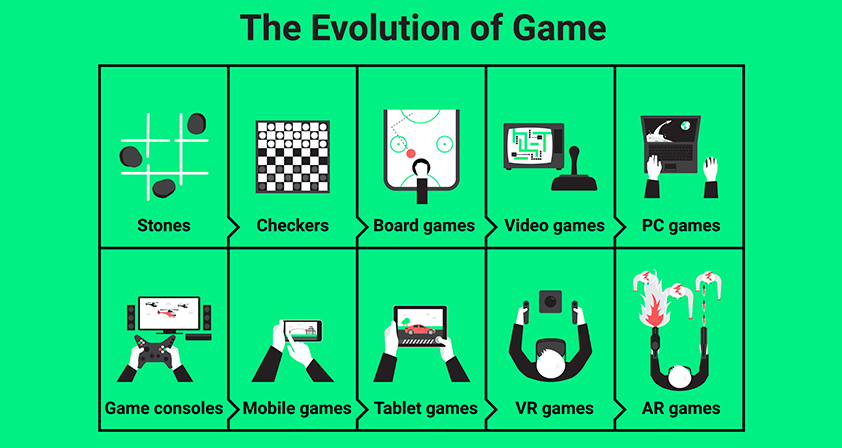The casino floor has always been a theater of chance, skill, and human psychology – a digital arena as dynamic as the games at Flight Legends free. But beneath the glittering lights and spinning wheels, a technological revolution is reshaping one of the world’s oldest entertainment industries. From artificial intelligence that can spot card counters in milliseconds to blockchain systems ensuring fair play, cutting-edge software is transforming every aspect of the casino experience.
The Digital Transformation of Gaming

Modern casinos are no longer just entertainment venues—they’re sophisticated data centers wrapped in velvet and neon. The integration of advanced software systems has fundamentally altered how casinos operate, from the games themselves to customer service and security operations.
Real-Time Analytics and Player Tracking
Today’s casino management systems process millions of data points every second. Advanced algorithms track player behavior patterns, betting histories, and game preferences to create detailed profiles that help casinos optimize everything from floor layouts to promotional offers. This isn’t just about maximizing profits—it’s about creating personalized experiences that keep players engaged while promoting responsible gambling.
Casino operators now use predictive analytics to identify players who might be developing problematic gambling behaviors, allowing for early intervention. Machine learning models analyze factors like session length, betting patterns, and win-loss ratios to flag potential issues before they become serious problems.
Security in the Digital Age

AI-Powered Surveillance Systems
The days of security guards squinting at grainy black-and-white monitors are long gone. Modern casino surveillance relies on AI-powered systems that can simultaneously monitor hundreds of cameras, instantly flagging suspicious behavior. These systems can identify known cheaters from facial recognition databases, detect unusual betting patterns that might indicate collusion, and even spot sleight-of-hand techniques that would be invisible to human observers.
Advanced computer vision algorithms can track individual chips across multiple camera angles, ensuring that every bet is accurately recorded and that no chips mysteriously disappear or multiply. Some systems can even detect minute changes in a dealer’s shuffling technique that might indicate they’re working with players to manipulate outcomes.
Blockchain and Provably Fair Gaming
Cryptocurrency and blockchain technology are introducing new levels of transparency to casino operations. “Provably fair” gaming systems use cryptographic techniques to allow players to verify that game outcomes weren’t manipulated. Before each game round, the casino publishes a cryptographic hash of the outcome, and players can later verify that the results match this predetermined value.
This technology is particularly important for online casinos, where players can’t physically observe cards being dealt or wheels being spun. Blockchain-based systems create an immutable record of every game, every bet, and every outcome, building trust in an industry that has historically struggled with credibility issues.
The Evolution of Game Design

Adaptive Game Mechanics
Modern slot machines and electronic games use sophisticated software to create dynamic experiences that adapt to individual players. These systems can adjust difficulty levels, bonus frequencies, and even visual themes based on player preferences and behavior patterns. The goal isn’t to make games unfair, but to maintain engagement by ensuring that the gaming experience remains challenging and entertaining for each individual player.
Virtual and Augmented Reality Integration
Some casinos are experimenting with VR and AR technologies to create immersive gaming experiences that blend physical and digital elements. Players might wear AR glasses that overlay digital information onto real card games, or step into VR environments for completely virtual casino experiences. These technologies are still in their early stages, but they represent the future of interactive entertainment.
Regulatory Technology and Compliance
Automated Compliance Monitoring
RegTech (Regulatory Technology) solutions help casinos navigate the complex web of gaming regulations that vary by jurisdiction. Automated systems monitor all gaming activity in real-time, flagging potential violations of betting limits, age restrictions, or anti-money laundering requirements. This not only helps casinos avoid costly fines but also ensures that they’re operating within the bounds of responsible gambling practices.
Digital Identity Verification
Advanced identity verification systems use biometric data, document scanning, and database cross-referencing to ensure that only eligible players can access casino services. These systems can instantly verify a player’s age, check them against self-exclusion lists, and ensure they’re not on any regulatory watch lists.
The Mobile Revolution
Seamless Integration Across Platforms
Modern casino software creates seamless experiences across physical and digital platforms. A player might start a slot game on the casino floor, continue playing on their smartphone while waiting for dinner, and then return to the physical machine later—all while maintaining the same game state and accumulated bonuses.
Mobile apps powered by sophisticated backend systems allow players to make reservations, order drinks, check their loyalty point balances, and even control some aspects of their gaming experience remotely. GPS technology ensures that mobile gaming is only available in licensed areas, maintaining compliance with location-based gambling restrictions.
Artificial Intelligence and Machine Learning
Customer Service Automation
AI-powered chatbots and virtual assistants handle routine customer service inquiries, freeing human staff to focus on more complex issues. These systems can answer questions about games, process simple account requests, and even provide personalized game recommendations based on a player’s history and preferences.
Natural language processing allows these systems to understand and respond to customer inquiries in multiple languages, making casinos more accessible to international visitors. Machine learning algorithms continuously improve these interactions by learning from successful customer service resolutions.
Revenue Optimization
Sophisticated algorithms analyze vast amounts of data to optimize casino operations for maximum profitability while maintaining positive customer experiences. These systems can predict busy periods and adjust staffing accordingly, optimize game placement on the casino floor, and even adjust promotional offers in real-time based on current player activity and market conditions.
Data Analytics and Business Intelligence
Predictive Modeling
Advanced analytics platforms help casino operators make data-driven decisions about everything from marketing campaigns to new game acquisitions. Predictive models can forecast which games will be popular, identify the most effective promotional strategies for different player segments, and even predict which customers are most likely to visit during specific time periods.
These insights help casinos optimize their operations, reduce waste, and create more targeted marketing campaigns that resonate with specific customer segments. The result is more efficient operations and better experiences for players.
The Future of Casino Technology
Integration with Smart City Infrastructure
As cities become smarter and more connected, casinos are exploring ways to integrate with broader urban technology ecosystems. This might include coordination with transportation systems to manage traffic flow during major events, integration with hotel and restaurant booking systems to create comprehensive entertainment packages, or participation in city-wide loyalty programs that reward visitors for exploring multiple venues.
Quantum Computing Applications
While still in the experimental stage, quantum computing could revolutionize several aspects of casino operations. Quantum algorithms could provide unprecedented security for financial transactions, enable more sophisticated risk analysis, and create truly random number generation systems that are mathematically impossible to predict or manipulate.
Sustainability Through Technology
Environmental concerns are driving casinos to adopt green technologies and sustainable practices. Smart building systems optimize energy usage based on occupancy patterns, while advanced HVAC systems use AI to maintain comfortable conditions while minimizing energy consumption. Digital receipts and mobile apps reduce paper waste, while LED lighting systems create spectacular visual effects while using a fraction of the energy of traditional lighting.
Challenges and Considerations
Privacy and Data Protection
The extensive data collection that enables personalized gaming experiences also raises important privacy concerns. Casinos must balance the benefits of data-driven personalization with respect for customer privacy and compliance with data protection regulations like GDPR. Implementing robust data security measures and transparent privacy policies is essential for maintaining customer trust.
Responsible Gambling Technology
As gaming technology becomes more sophisticated and potentially more engaging, the industry has a responsibility to ensure that these advances don’t contribute to problem gambling. This includes developing better tools for identifying at-risk players, creating more effective self-exclusion systems, and designing games that prioritize entertainment value over potentially addictive mechanisms.
Digital Divide Considerations
While technology can enhance the casino experience, operators must ensure that technological advances don’t exclude customers who are less comfortable with digital systems. This means maintaining traditional gaming options alongside high-tech alternatives and providing adequate support for customers who need help navigating new technologies.
Conclusion
The marriage of cutting-edge software and traditional casino gaming is creating unprecedented opportunities for innovation in the entertainment industry. From AI-powered security systems that ensure fair play to mobile platforms that create seamless omnichannel experiences, technology is making casinos safer, more efficient, and more entertaining than ever before.
However, this technological revolution comes with responsibilities. As casinos become increasingly sophisticated in their use of data and algorithms, they must maintain their commitment to fair play, responsible gambling, and customer privacy. The most successful casinos of the future will be those that use technology not just to optimize profits, but to create better, safer, and more enjoyable experiences for their customers.
The casino industry’s embrace of cutting-edge software represents more than just a technological upgrade—it’s a fundamental reimagining of what entertainment can be in the digital age. As these technologies continue to evolve, we can expect even more dramatic changes in how we think about gaming, entertainment, and the intersection of technology and human psychology.
The cards have been dealt, the code has been written, and the future of the casino industry is being shaped by the seamless integration of silicon and chance. In this new era, the house edge isn’t just about mathematics—it’s about having the smartest software and the most innovative technology on your side.



